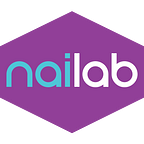Munira Twahir: “I aim to create spaces and opportunities for others and use my voice to help people.”
Briefly describe yourself to us?
I would describe myself as a documenter and a servant of the people. I aim to create spaces and opportunities for others and use my voice to help people. I was born and raised in Nairobi. In my early primary education, I went to Saint Nicholas and then transferred to Braeside. I finished my O levels at Rusinga and then proceeded to United States International University (USIU) where I did a degree in business administration with a major focus on entrepreneurship.
What was your key driving force to become an entrepreneur?
I discovered very early in life that I have a weakness when it comes to taking orders from people. I knew I wouldn’t fit in a traditional corporate environment, so I opted to do business instead.
How did the idea for your business come about?
I got the idea for Ari in 2012 but I registered the business in 2013. I took a full year to investigate and see whether the idea was viable. The original concept for the business when I started was to provide a discreet and de-bundled option for women and girls in a school environment to buy sanitary pads at an affordable price of Kshs. 10. I had a friend who needed pads while we were on campus attending some classes as it was that time of the month and she did not have any. . IYou will agree with me that sometimes we women ignore to carry pads, even though we know our cycle, sometimes we are arrogant enough to say that we will have a feeling and our bodies will alert us. Obviously, this is not always the case. I witnessed my friend’s anxiety as she was calling all her friends to help her out. No one could help her out and so she had to cut school that day. That is where the idea for the business was born. To set up pad dispensers where women and girls in a school environment can buy a single pad at an affordable price of 10 shillings.
Has your business concept changed and if so who is your target market now?
We serve school-going children in primary and high school however we moved away from a cash-based system. These days we work with donors to help deliver pads to the girls in schools. By using our delivery system donors are able to measure results. We offer them a seamless delivery system as our machine captures information to help them evaluate if they have had an impact or not.
What makes your business unique?
Our system is unique in that we didn’t try to reinvent the donor value chain; we simply enhanced it. Traditionally if a donor wanted to donate pads to young girls they would go to the school, drop the pads, and then the teachers would distribute the pads to the girls. We kept that system intact. So the donor will still come to school to do the delivery and have a ceremony, we then install the pad dispensers and teach the students and the teachers how to use the machine and how to troubleshoot in case there’s an issue. The schools have a teacher who is in charge of girl welfare, he/she is usually in charge of filling up the pad dispensers when the pads run out. We have a back-end system that counts the pads in the machine and if it reaches a certain threshold we usually call the teacher in charge and ask them to refill.
How did covid-19 affect your business and how did you manage to navigate as a business?
Schools were shut down and having the pad dispensers at the schools wasn’t an option for us anymore. We thought of other places where we could set up the dispensers but it did not work because COVID was exceptional in the sense that not only were the schools affected but public areas as well. We were left with no other option but to freeze all operations completely. Fortunately, I did not have to lose any staff because I work with people on contracts that are project-based and it happened that when COVID happened we were transitioning from one project and to another one.
What are some of the challenges that you’re facing as a business as you rebuild?
The COVID restrictions in the schools. Right now no one is allowed in and out of the school apart from the students and teachers. We are not allowed to go into the schools to do the installations and teach the students how to interact with our machines. Right now we are trying to figure out a way to teach the students and teachers how to interact with the machine without putting anybody in harm’s way.
What are the main challenges that you experienced when you were starting the business?
Raising the initial capital for my business was a challenge. I tried to fundraise from everyone I knew but they needed a proof of concept but I didn’t have money for proof of concept. I took the only Kshs. 2000 that I had and bought beads and started making key chains. I sold the key chains for Kshs. 100. I sold to everyone I knew and at some point, I hawked in town. I made Kshs. 40,000 and bought my first pads dispenser. Sadly I was swindled, it turned out that the people were corn men. This taught me to be vigilant especially when buying things online. My dad saw how frustrated I was and agreed to invest in the business.
Our turning point as a business was when I enrolled for the I AM 2.0 program at Nailab. The program I went through not only helped me finance my innovation’s product development, but also refine my business model. Nailab played a great role in our success.
